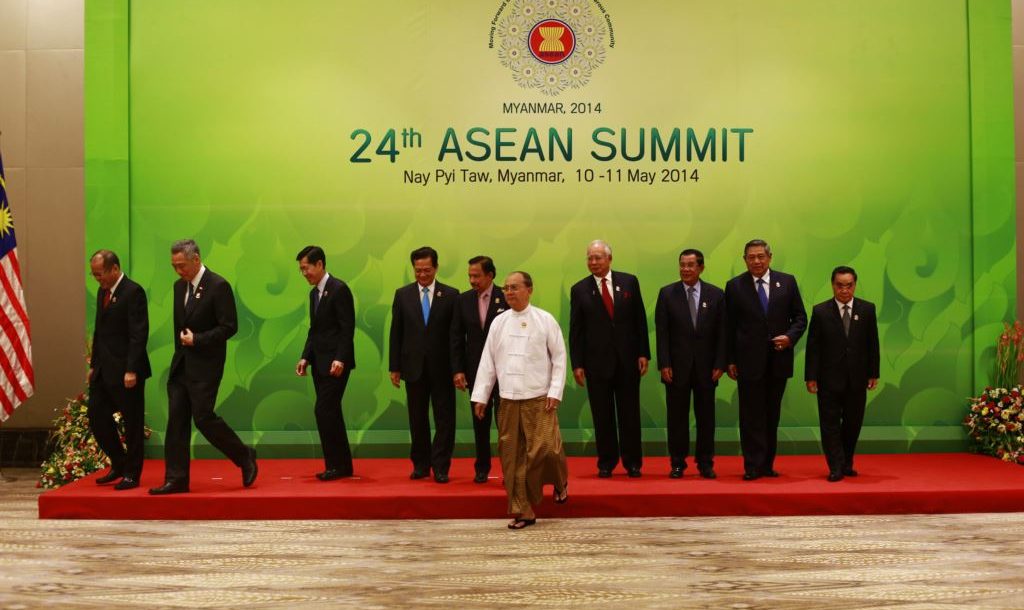Indonesia’s Parliamentary and Presidential elections this year may well be one of the most important events of the year for Southeast Asia, but that impression has not been conveyed by the mainstream and alternative media in the countries closest to it, including Malaysia, the Philippines, Thailand and Singapore.
Just how and why this is the case beggars the question of whether the communities of the respective Southeast Asian nation-states really know and understand each other, and whether there is any real interest beyond the narrow confines of state-determined borders today.
It also tells us something about how the nations of Southeast Asia have evolved since the postcolonial era, and leads us to ask if there really is such a thing as a common sense of Southeast Asian awareness, or a sense of belonging to a wider ASEAN region. (This question is doubly relevant now, as ASEAN is about to undergo further integration in 2015.)
A cursory observation of the goings-on in the countries of the region might explain why there seems to be less interest in the Indonesian elections: Thailand, as everyone knows, is currently experiencing its own domestic political crisis after months of popular demonstrations finally culminated with the government being toppled and the army moving in. It is hardly surprising, then, if Thai newspapers, TV channels and blogs on the internet are somewhat inward-looking at present.
Malaysia and Singapore, on the other hand, though spared such moments of radical uncertainty seem relatively oblivious to the importance of the Indonesian elections and why it matters to them: An odd observation to say the least considering the fact that for both Malaysia and Singapore, Indonesia is a reality that cannot be overlooked or avoided – to the West, South and East of them lies the vast Indonesian archipelago, and whatever happens in Indonesia can and will invariably impact on both Malaysia and Singapore as well.
To give us a sense of the deep economic linkages and the extent to which these three economies are inter-related now, consider the fact that many of the palm oil developments, retail outlets, banking facilities and flight operators that exist in Indonesia today are actually Malaysian or Singaporean-owned. Indonesia’s economic health, and political stability, are crucial to the well-being of Malaysia and Singapore as well.
And during the Parliamentary elections campaigns up to April, and the Presidential campaign that is on-going, there have been references made to economic nationalism in Indonesia, the need to return to the legacy of Sukarno, and for Indonesia to be self-reliant economically and less dependent on foreign capital for its success. One would think that this would cause economic analysts and policy makers in the neighbouring countries of ASEAN to sit up, but the reaction thus far has been muted.
There may be several reasons for the relatively low level of coverage given to Indonesia’s elections in the neighbouring countries next door: For starters, as was noted above, some of Indonesia’s neighbours are busy with the task of putting out domestic political fires of their own and have less time to spare on the affairs of others. This may be the case for Thailand with its domestic issues, and for Vietnam and the Philippines that are currently engaged in a long-drawn contest of nerves with China over claims on the South China Sea.
Another factor may be the manner in which the mainstream media of countries like Malaysia and Singapore rely on newsfeeds and columns shared with their counterparts in Indonesia, and many of the more established broadsheets and tabloids of the region have a working relationship with their counterparts in other countries, and where the sharing of syndicated columns is common. Here lies a problem though, and it is this: For the mainstream press of Malaysia and Singapore to rely on columns from their counterparts in Indonesia effectively means sharing news with English-language dailies based in Jakarta.
This immediately introduces an element of linguistic, cultural and regional bias to the coverage they get, because: 1. they are less inclined to send journalists of their own, and 2. they have no exposure or awareness of just how complex (and crowded) Indonesia’s local media scene happens to be today. Notwithstanding the quality of established newspapers like the Jakarta Post, it has to be remembered that Indonesia’s real mainstream media is in Bahasa Indonesia, and that across the country the role of the local press and media is growing more important too.
Researchers who do fieldwork like myself know that in places outside Java it is the local provincial media that counts, but how many non-Indonesian scholars have even heard of local provincial papers like the Makassar Tribune or the Kaltim Post? (Based in Sulawesi and Kalimantan) Missing out on these papers also means missing out on local stories that may have an impact on the national story in the long run.
Thirdly, the ‘alternative’ online media in many countries of Southeast Asia are, at present, precisely that: alternative sources of information that present a different account of national news that is offered by the mainstream press (where governmental/political control or ownership can be subtle or blatant).
In these countries, the role of the alternative media is to counter the bias in mainstream media reporting that is sometimes seen as being evidently partisan to the status quo. As a result of this, however, their focus has tended to be national – as in the case of the online media and blogs in Thailand, Malaysia and Singapore – and few of these news sites or blogs have devoted more time to regional news. (Compounding matters for these alternative media outlets is the obvious lack of funding and thus their inability to station reporters abroad.)
Thus a quick look at the state of alternative media in Thailand, Malaysia and Singapore gives us the distinct impression that the only news that matters is local: Concerns raised tend towards themes like rising living costs, traffic problems, inefficiency of government service delivery, corruption etc.

Thailand’s media has enough to contend with, without having to cover Indonesia’s elections as well. Photo credit: redbamboo16 on twitter.
The net result of these factors is the emergence of ‘national discursive communities’ where news and information are confined to the concerns of the nation singularly, and with less emphasis on regional matters and developments in neighbouring countries. This is also the result of postcolonial national history discourses that have been written by postcolonial national historians who have tended to privilege their own nation-states as the primary actors in history, and the absence of anything that resembles a common regional history in the textbooks of Southeast Asia.
It thus comes as no surprise that Indonesia’s vitally important elections that will determine the future leadership of the most populous country in ASEAN is hardly discussed by the communities residing beside it. That this has come to pass is somewhat disheartening, as it underscores the cynicism of those who feel that further ASEAN integration in 2015 will be a process led and defined by states and governments only, and that there will be less people-to-people contact in the region.
But it is also worrying in the sense that it betrays the deep-rooted insularity of ASEAN nations, and the fact that ASEAN is not developing as a community of nations with fluid and overlapping borders, but rather as a confederation of states with hard frontiers instead.
Farish A Noor is Associate Professor at the S Rajaratnam School of International Studies RSIS, Nanyang Technological University NTU, Singapore.
 Facebook
Facebook  Twitter
Twitter  Soundcloud
Soundcloud  Youtube
Youtube  Rss
Rss 
